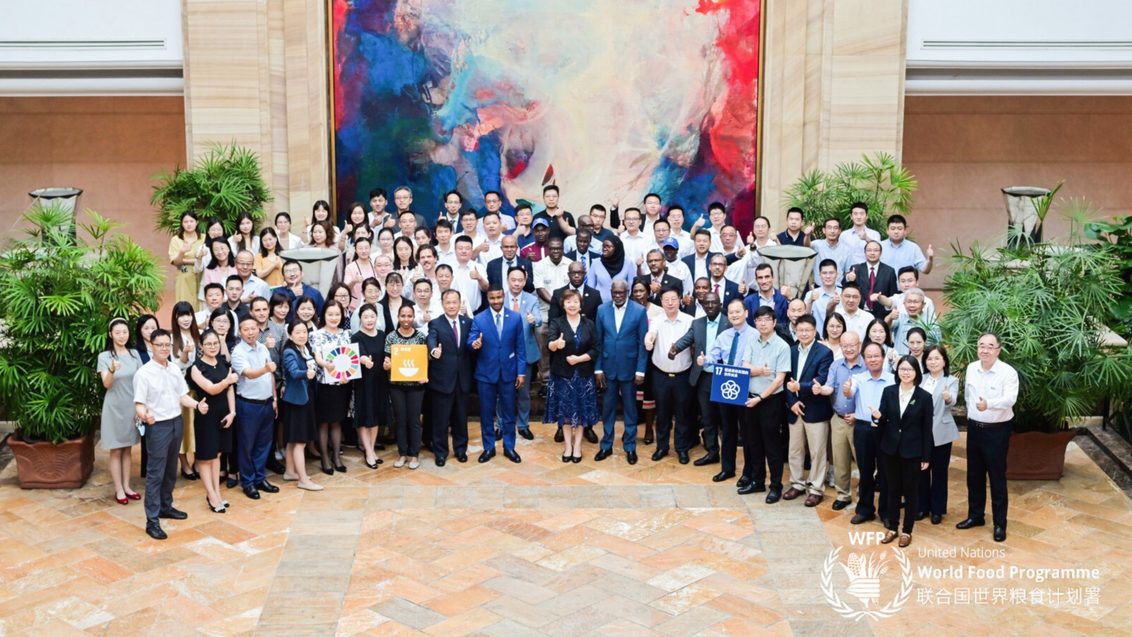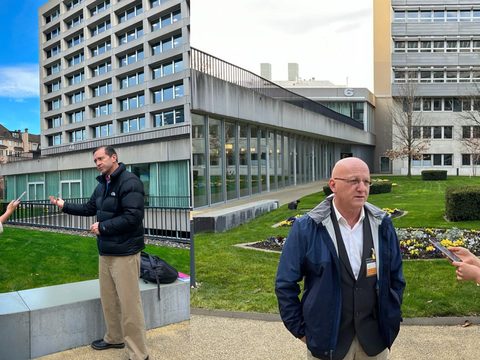China Africa Rice Value Chain Conference 2023

The annual China Africa Rice Value Chain conference, organised by the World Food Programme (WFP), was held in Wuxi Jiangsu province, from the 19th to the 21st of June 2023. Attendees of the conference were a combination of Chinese state-owned companies with business operations in Africa, and African government officials or researchers. In both cases, participation in this event was centered on achieving their aim to foster and promote South-South cooperation in the field of agricultural development.
In the afternoon of June 19th a small-scale seminar, prior to the start of the conference, was held. The seminar contained two presentations on rice value chain enhancement in Africa: one from SFSA on Nigeria and Mali and the other was from WFP on Côte d’lvoire and Guinea. There was also a session where each participant in the conference shared their personal and professional experiences on the rice value chain in Africa. During these exchanges, a general consensus seemed to have been reached when assessing the Africa rice value chain and potential ameliorations.
In certain African regions, there are currently limited or inefficient infrastructures in place for rice production, including in terms of dams, irrigation processes, power generation, road infrastructures, storage facilities, etc. Thus, low machinery rates and significant losses incurred during the postharvest period have been one of the greatest challenges for rice production in Africa. The lack of financial solutions for accessing necessary machinery for production as well as inappropriate storage facilities and insufficient moisture management systems have been the main causes of such challenges.
During the conference, discussions arose on the current conditions of cooperation between both regions. In terms of the machineries involved in rice production, there is no major manufacturing company but rather a plurality of actors. For instance, two influential participants in the conference include the Swiss company Buhler and the Chinese company, Qili (齐鲤). While Buhler provides all sorts of industrial processing machines and systems for grains on an international level, Qili (齐鲤) is dedicated to providing affordable processing machines and equipment for rice. Many rice machineries manufacturers are small-medium sized companies based in Shandong or Henan provinces. Although many of these companies have the capacity to export necessary production machineries to Africa, they do not provide accompanying maintenance services in Africa due to a scattered market. The inaccessibility and unavailability for technical aid and other services severely limits the production capacity for rice in the continent, especially when equipment is malfunctioning.
On the first day of the formal meeting, guest speakers were invited to present on the Chinese rice value chain and latest rice development trends that could be implemented in Africa. For example, a small steel storage tank has been developed which is affordable and could meet the needs of African farmers wanting to store small amounts of rice. Later in the afternoon, all the conference participants visited China’s latest strategic rice storage system, which includes a fully automated system for storing and distributing packed rice with a low-loss rate.
The second day of the conference included case-studies on four African countries to share their experiences in rice production and existing problems faced by their farmers. Limited processing capacities and bureaucratic challenges are often present in African countries, hindering rice production capabilities. Furthermore, there are few effective policies implemented, and even less that are successfully reinforced which aim to promote rice production in the continent. Each country thus highlighted the prevalence of low yields and high-loss rates, especially during the post-harvest period. Despite rapidly growing demands for rice, due to poor irrigation systems, production rates are not able to meet those demands.
During the conference, there were a lot of discourses on rice nutrition in Africa and thus there was a meaningful exchange of views on the potential of fortified rice in the region as a solution, with a special recommendation for parboiled rice. Adding elements in deficiency by griding and reshaping integrated rice is an excellent way to do this. However, at this point in time, this process has to be conducted overseas and exported to Africa, due to its current limitations in manufacturing capacity.
After the success of a similar project in India, the WFP director of Africa is very passionate about potentially implementing and shaping a similar initiative to the context of Africa. Future initiatives are being considered and discussed, in order to provide solutions to ensure growing production rates and provision of nutritional products in the case of Africa.

